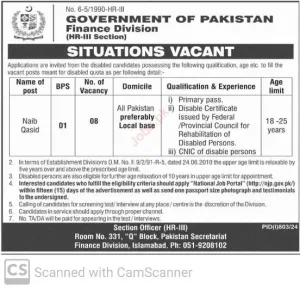TVETA Tender in Transforming Technical and Vocational Education in Punjab, Pakistan
In Punjab, Pakistan, the Technical and Vocational Education and Training Authority (TVETA) plays a pivotal role in the advancement of vocational education. By issuing tenders for various projects and services, TVETA seeks to enhance the infrastructure, quality, and reach of technical education across the province. This post explores the significance of TVETA tenders in Punjab, their impact on educational development, and the opportunities they offer for various stakeholders.
Understanding TVETA Tenders in Punjab
TVETA tenders in Punjab are public procurement opportunities aimed at inviting contractors, suppliers, and service providers to contribute to the development of the technical and vocational education sector. These tenders cover a wide range of projects, from constructing and renovating training facilities to supplying educational materials and providing consultancy services for curriculum development and capacity building. The tendering process is designed to be transparent and competitive, ensuring that the best value is achieved for public funds.
Enhancing Educational Infrastructure
One of the most significant impacts of TVETA tenders in Punjab is the improvement of educational infrastructure. Many technical and vocational training institutions in the region have long struggled with inadequate facilities. Through TVETA tenders, substantial investments are made in building modern classrooms, laboratories, workshops, and hostels. These improvements create a conducive learning environment and enable institutions to offer a broader range of courses and accommodate more students.
For example, the construction of well-equipped workshops with the latest tools and machinery ensures that students receive hands-on training that aligns with industry standards. This practical experience is essential in preparing students for the workforce, where they can immediately contribute to their respective fields. Moreover, the development of hostels and other residential facilities makes it easier for students from remote areas to access quality vocational education, promoting inclusivity and equal opportunities.
Providing Modern Educational Resources
In addition to infrastructure development, TVETA tenders also focus on the procurement of modern educational resources. This includes the supply of textbooks, learning materials, and advanced technological tools such as computers and software. By providing these resources, TVETA ensures that students have access to up-to-date information and can engage with contemporary learning methodologies.
The availability of high-quality educational materials enhances the overall learning experience and enables students to gain a deeper understanding of their chosen fields. Furthermore, integrating technology into vocational training is crucial in today’s digital age. Access to computers and specialized software allows students to develop skills relevant to the current job market, such as computer-aided design (CAD) for engineering students or digital marketing tools for business students.
Curriculum Development and Capacity Building
A critical aspect of TVETA tenders in Punjab is the emphasis on curriculum development and capacity building. The dynamic nature of the job market requires that vocational training curricula be continuously updated to reflect current trends and industry demands. TVETA tenders often include opportunities for consultancy services where experts are engaged to review and revise existing curricula, ensuring they are relevant and comprehensive.
Capacity building initiatives funded through TVETA tenders also play a vital role in enhancing the skills of trainers and educators. Professional development programs, workshops, and training sessions are organized to equip educators with the latest pedagogical techniques and industry knowledge. This ensures that they can deliver high-quality training that meets the needs of both students and employers.
Promoting Innovation and Entrepreneurship
TVETA tenders also contribute to fostering innovation and entrepreneurship within the vocational training sector. By funding projects that encourage the development of new training programs and entrepreneurial initiatives, TVETA helps create a culture of innovation. For instance, tenders may be issued for establishing incubation centers within vocational training institutions, where students can develop and test their business ideas.
Such initiatives are crucial in nurturing the entrepreneurial spirit among students, providing them with the skills and support needed to start their own businesses. This not only contributes to job creation but also drives economic growth by promoting the development of new products and services.
Opportunities for Stakeholders
TVETA tenders present numerous opportunities for various stakeholders, including contractors, suppliers, educators, and students. For contractors and suppliers, these tenders offer a chance to participate in projects that have a meaningful impact on the education sector. By contributing their expertise and resources, they play a part in shaping the future of vocational training in Punjab.
For educators and institutions, TVETA tenders provide the necessary funding and support to implement projects that enhance the quality of training and education offered. This, in turn, attracts more students and improves the institution’s reputation and standing.
Students, arguably the most important stakeholders, benefit immensely from the outcomes of TVETA tenders. Improved infrastructure, access to modern educational resources, and exposure to updated curricula and training methodologies equip them with the skills and knowledge needed to succeed in their careers. Furthermore, initiatives that promote innovation and entrepreneurship provide them with additional pathways to success, beyond traditional employment.
Addressing Challenges
While TVETA tenders have significantly contributed to the development of technical and vocational education in Punjab, several challenges remain. The tendering process must be continuously monitored and improved to ensure transparency, fairness, and efficiency. Additionally, there is a need for greater collaboration between TVETA and industry stakeholders to ensure that training programs are closely aligned with market demands.
Another challenge is the sustainability of funded projects. It is essential to establish mechanisms that ensure the long-term viability of initiatives launched through TVETA tenders. This includes regular maintenance of infrastructure, ongoing professional development for educators, and continuous updating of curricula to keep pace with technological advancements and industry needs.
Conclusion
TVETA tenders play a vital role in the ongoing efforts to improve technical and vocational education in Punjab, Pakistan. By focusing on infrastructure development, educational resources, curriculum enhancement, and capacity building, these tenders address key challenges and pave the way for a more robust and responsive vocational training system. The impact of these tenders is far-reaching, benefiting not only the students but also the wider economy by producing a skilled and competent workforce. As TVETA continues to issue tenders and implement various projects, the future of vocational education in Punjab looks promising, with endless possibilities for growth and development.
Call to Action
For contractors, suppliers, and service providers interested in participating in TVETA tenders, it is crucial to stay informed about upcoming opportunities and understand the requirements and procedures involved. By actively engaging in these tenders, stakeholders can contribute to the transformative journey of technical and vocational education in Punjab. For educators and institutions, embracing the opportunities presented by TVETA tenders can lead to significant improvements in the quality of education offered, ultimately benefiting the students and the broader community. Together, we can build a stronger, more inclusive vocational education system that meets the needs of the 21st-century workforce.


